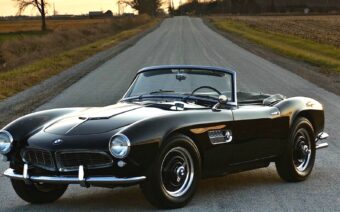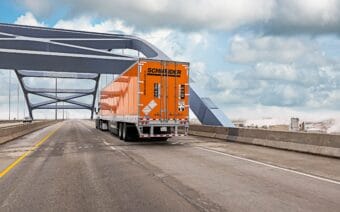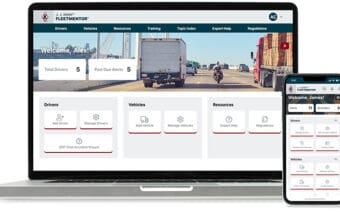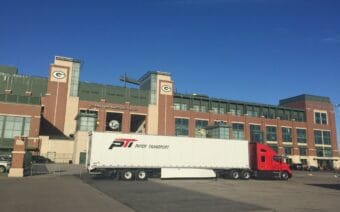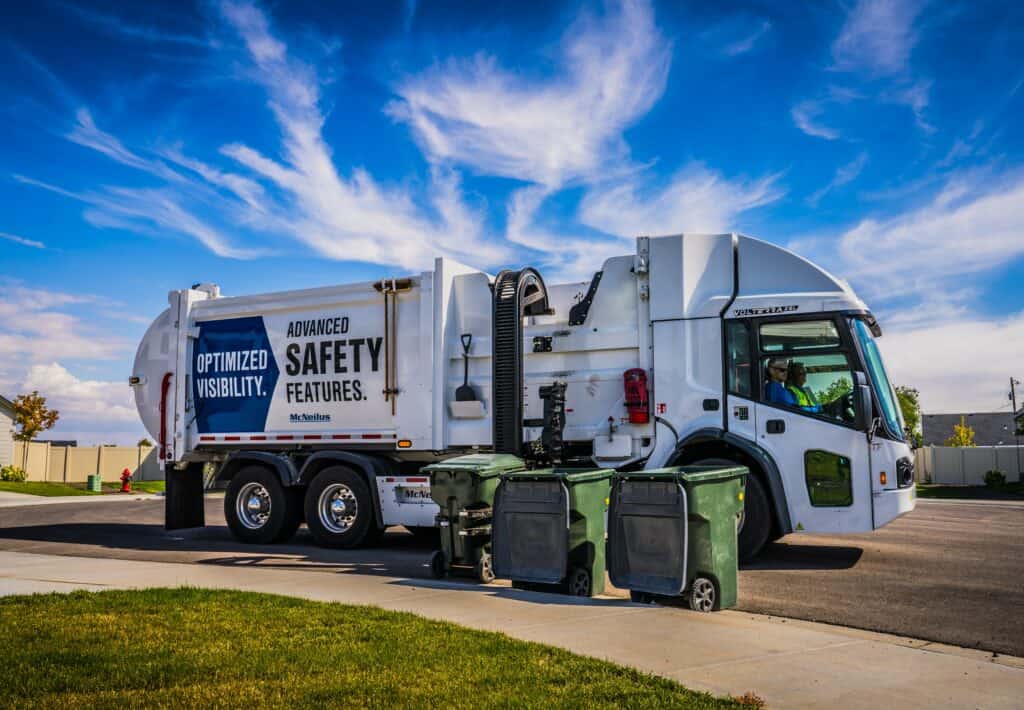
November 4, 2024
OSHKOSH – The Vocational segment of Oshkosh Corporation is made up of Oshkosh Airport Products, Pierce Manufacturing, Frontline Communications, McNeilus, Oshkosh Specialty Vehicles, Oshkosh Aerotech, Oshkosh S-Series and Iowa Mold Tooling – all of which Katie Kauzlaric, director of marketing for Oshkosh’s vocational segment, said focus heavily on innovation.
One such area of innovation, Kauzlaric said, is electrification.
Specifically in the refuse and recycling collection sector, Lee Dreas, vice president and general manager of McNeilus Truck & Manufacturing, said that includes the McNeilus® Volterra™ ZSL™ – the company’s electric refuse and recycling collection vehicle (RCV).
As the industry’s first fully integrated electric refuse vehicle, Dreas said the McNeilus Volterra ZSL eRCV was designed specifically with driver comfort, safety, sustainability and operational efficiency in mind.
“It’s a vehicle platform that’s safer than what’s on the road today,” he said. “It has a lot of the technology in it that your car does, such as ABS braking systems and 360-degree cameras.”
Dreas said the vehicle was purposely built for the refuse industry.
“The garbage trucks you see on the road today are on commercially available chassis, and those are used across all kinds of different vocations – could be concrete mixers, freight haulers, etc.,” he said. “Commonly, a body is tailored to fit those chassis.”
With the McNeilus Volterra ZSL, however, Dreas said, the opposite is true.
“We built a chassis specific to the industry,” he said. “So, it’s a lot more comfortable for a driver, it has all of the safety features I previously mentioned and then on top of that, ‘oh, by the way, it’s a refuse truck,’ so it’s specifically designed for that.”
Similarly to a diesel truck with a tank of fuel, Dreas said the McNeilus Volterra ZSL runs a full day’s route on a single charge.
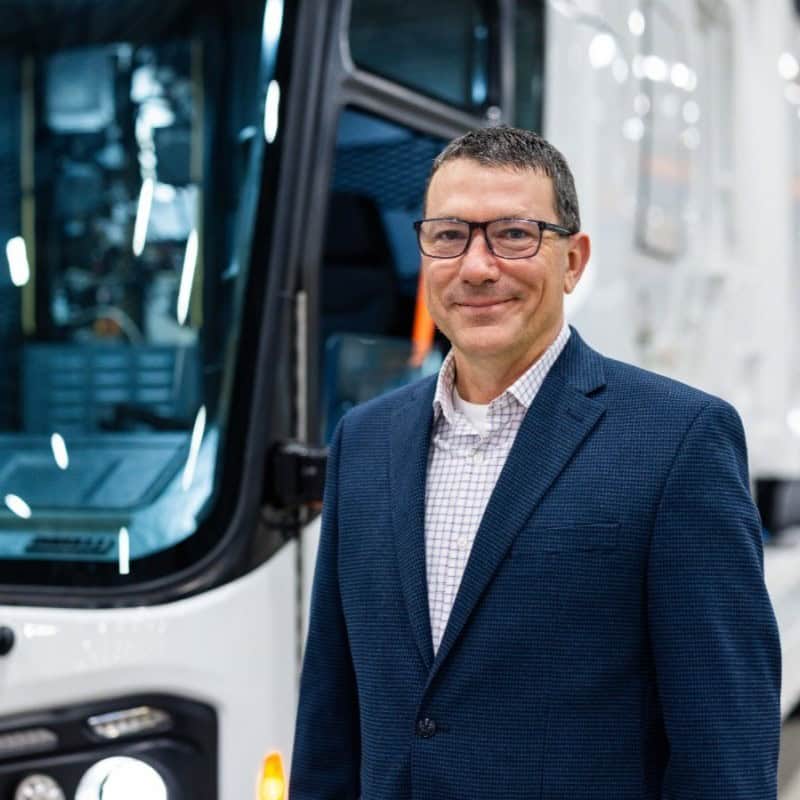
“A full day’s work for a refuse truck is more than 100 miles, covering more than 1,000 homes – commonly done in three routes,” he said. “And the McNeilus Volterra ZSL is doing that day in and day out.”
Indicative of the truck’s capabilities, features and sights set on the future, Dreas said McNeilus recently received an order from Republic Services, Inc. – a North American waste disposal company – for additional McNeilus Volterra ZSLs.
“They’re very committed to bringing environmentally friendly solutions into this industry,” he said.
Dreas said this is the second order from Republic Services – following the successful operation of initial units into the company’s residential collection fleet.
“We’ve worked with them through the prototype phase of this project – so, they’ve been running them on routes and giving us interactive feedback (as) we’ve been developing and improving the truck,” he said. “It’s been a little more than a year now where they’ve been testing these trucks for us. The vehicle has been testing extremely well.”
Following the success of the prototypes, Dreas said Republic Services ordered 50 pilot trucks.
“They ordered another 50, which we’re in the process of delivering those in the second half of this year,” he said. “We’re delivering more vehicles to them on a weekly basis.”
And recently, Dreas said Republic Services ordered an additional 100 vehicles.
“Those are additional units on top of everything they purchased so far,” he said.
Working with someone like Republic Services, Dreas said “creates instant credibility.”
“They’re, of course, very vocal about their commitment around sustainability,” he said. “They’re also a great partner in helping us showcase what this platform is capable of doing – because they have not been shy about it. They’re sharing a lot of information around the success of this product and others as well, and they’re a great partner in this.”
During discussions with potential customers for the Volterra ZSL – “we’ve been demoing it with other customers as well, and we’re taking orders from others” – Dreas said EV is what “gets us in the door.”
“But it is safety, driver comfort and then EV – that’s the order (of importance) when someone comes back to buy,” he said. “Again that’s because it is a vehicle that we specifically made for the refuse industry. So, once a driver gets in it, they don’t want to go back to driving their old truck.”
With the labor shortage currently happening across industries, Kauzlaric said, “if I know my company is going out of their way to get me a vehicle that allows me to be more comfortable and be more efficient – that means something.”
“We’ve heard multiple times where drivers get in the vehicle and they’re overwhelmed with the care that went into the design, with the large windshield to help with visibility and the ergonomic design to give that driver – who’s in that vehicle 12 hours a day – a more comfortable ride,” she said.
Generating excitement
Watching the success the McNeilus Volterra ZSL has had, Dreas said, “makes you feel really good” as project development, he said, “is very difficult,” particularly when bringing a new innovation to the market that hasn’t been done before.
“There’s a lot of trial and error to it, but when that truck rolls out of the factory, and the excitement that you generate with your customer and then the communities – I mean, there are ribbon cuttings and celebrations when the trucks arrive – it makes you realize the importance of the work you do,” he said. “You’re also helping improve the lives and the environment of the communities that you operate in.”
Delivering a project, Dreas said, is always “a really cool experience,” but delivering the McNeilus Volterra ZSL – “this one has been at a whole different level for us.”
Not new to the electrification party
Dreas said electrification isn’t new to Oshkosh Corporation.
“We’ve been managing electrified products and designing them for three decades,” he said. “Honestly, that is the power of Oshkosh Corporation – we leverage all the learning across the different businesses to build products.”
The order from Republic Services is one Dreas said would have been hard to accomplish without support from its parent company.
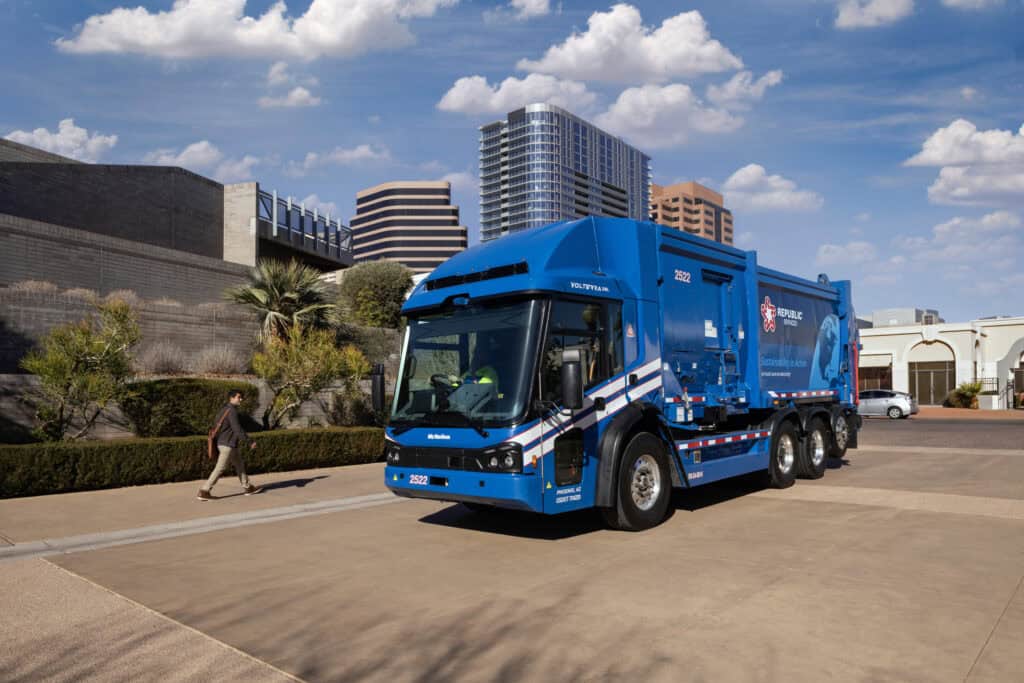
“We have these teams that work on mega trends, and we are sharing our experiences between all the different businesses on a very frequent basis,” he said. “From an efficiency perspective, we’ve learned things (that work) – as well as things that didn’t work – we share all of that to get products to market quicker.”
Dreas said when any Oshkosh company brings a product to market, it’s already tested, and it’s been through the R&D cycle.
“We don’t bring something to market to see if it’s going to work,” he said. “When we bring it to market, we know it’s going to work, and it’s going to make a difference.”
Dreas said Oshkosh Corporation believes in electrification because it has seen what it can do in a variety of platforms.
“We also have very ambitious goals around being a more sustainable company,” he said. “And this is just one of the products that can lead us in the direction of obtaining those goals. We’re all about creating a safer, cleaner environment for our customers and for the communities that we really live in.”
Collaboration across all Oshkosh Corporation companies, Dreas said, has created a platform in the vocational industries where companies can do a full day’s work and create zero emissions in the process.
“I don’t know if that’s something that was generally accepted before – there’s a lot of skepticism around it – but we’re doing it on a daily basis,” he said. “It worked so well that our customer (Republic Services) reached out and doubled its order size for this year.”
The Volterra ZSL eRCV is certified for zero emissions by both the U.S. Environmental Protection Agency and the California Air Resources Board.
The McNeilus Volterra ZSL, Dreas said, is a side-loader commonly used on residential routes – “but we have other variants in process right now.”
“This has worked for us so well that we have customers reaching out for other products as well,” he said. “We’re in the process of bringing the next variant to markets very soon.”
 Ardy & Ed’s Drive In serving up food and fun since 1948
Ardy & Ed’s Drive In serving up food and fun since 1948 U.S. Women’s Disc Golf Championship coming to Manitowoc County
U.S. Women’s Disc Golf Championship coming to Manitowoc County


